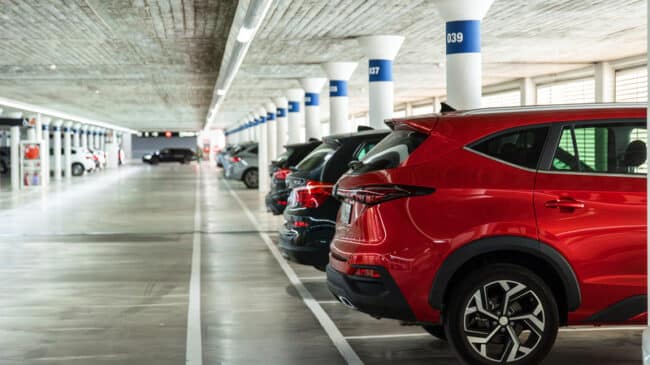Transit services are often plagued by unreliability and uncertainty, which makes it hard for some would-be transit users to enjoy their benefits. This uncertainty can stem from a variety of sources, and Virginia’s Department of Transportation (VDOT) is trying to address one of them—a lack of parking at transit stations or at least the lack of knowledge about when and where spots are available.
Virginia’s Department of Transportation is introducing a free app called ParkZen to make parking more efficient and less stressful for people in select areas in Virginia.
ParkZen is a crowdsourced parking app that collects anonymized data from users’ smartphones when they enter parking facilities. The data is then processed to determine the availability of parking spaces in real-time. Users can view this data on the app and receive directions similar to those of other navigation apps to the nearest available parking spot. The app can also lead users back to their parked vehicles.
Other apps exist, like Modii, that similarly offer customized parking guidance—though the method by which other apps collect data is different. Modii, for example, uses “extensive curbside parking data collection technology.” Potential applications include leveraging sensors or cameras to detect openings. ParkingRhino, another parking app, uses sensors and computer vision to report parking openings in real time. Both sensor and camera approaches require existing or newly installed coverage over the parking facility to function properly.
ParkZen was developed by Manos Chatzopoulos, an assistant professor of physics and astronomy at Louisiana State University (LSU), my alma mater. Though I never studied under Chatzopoulos, I did use his app religiously during my time at LSU to find parking. LSU is a large university in terms of campus size and student population. One of my greatest stressors pre-ParkZen was finding open parking spots in commuter lots. Students at LSU could regularly find themselves driving around parking lots, which would sometimes lead to what could be long walks to get to the specific buildings on campus for class.
ParkZen alleviated those concerns for me. The app not only flagged what spots were open but also what lots would generally have availability at a given time. I had far fewer late arrivals to class following the app download. The only time I remember having any problems with the app was when it flagged a few spots that weren’t open as available—though that was soon after the app was introduced when it likely lacked the data that higher app adoption rates brought. Later, during my time at LSU, I can’t recall the app ever leading me to a filled spot. 2023 data shows the app had 4,000 users at LSU.
Chatzopoulos and his colleagues saw the commercial capability of ParkZen and expanded it, starting with other university campuses. ParkZen launched at the University of Montana in the spring of 2023 and the University of Pittsburgh in October 2023.
The app received a $100,000 investment from the Baton Rouge Entrepreneurship Week High Pitch Stake competition and some federal funding through the Louisiana-run Small Business Credit Initiative, allowing the app to scale up further.
In November, VDOT began testing ParkZen in six transit lots in Northern Virginia (some for the Fairfax Connector bus routes and others for the Virginia Railway Express station parking lots) across Fairfax, Prince William, and Stafford counties. Similar to the app’s function at LSU, it can now provide real-time parking information in those lots in Virginia. VDOT anticipates the app will positively impact commuting, both in terms of transit ridership and reliability.
Amy McElwain, VDOT’s program manager in the Office of Strategic Innovations, highlighted the challenges that ParkZen can help address. “Commuters have told us that not knowing whether parking is available at commuter lots is a deterrent to using transit, carpools, vanpools, and slugging,” she said in a VDOT press release. “Through this app, commuters can optimize the parking experience for themselves and others, enabling everyone to park quickly and catch buses, trains, and carpool rides.”
One of the significant issues with any crowdsourced app is that it requires a sufficient number of regular users to be accurate. As the program and trials grow in scale, more users will naturally start using the app. VDOT has also offered an incentive for early adopters during this trial period. Top users between Nov. 2024 and Jan. 2025 will have a chance to earn a $50 Amazon gift card.
If ParkZen proves reliable for achieving Virginia’s goals during the trial period, the state aims to expand the use of the app to commuter parking lots in the spring of 2025. Success in Virginia could also lead to other states adopting similar initiatives for transit parking.
Innovative solutions like these are a step in the right direction for municipalities and states looking to improve transit ridership. If policymakers want to increase transit use, rather than adopting policies that make commuting by car or bike more difficult, making transit more convenient and appealing is the right approach.

